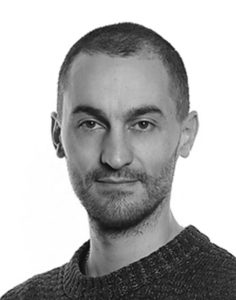Lorenzo Galluzzi (born 1980) is currently Associate Professor with the Cancer Signaling and Microenvironment Program of Fox Chase Cancer Center (Philadelphia, PA, US), Honorary Assistant Professor Adjunct with the Department of Dermatology of the Yale School of Medicine (New Haven, CT, USA), and Associate Professor of Lewis Katz School of Medicine at Temple University (Philadelphia, PA, US), as well as Faculty Member with Graduate School of Biomedical Sciences and Biotechnology of the University of Ferrara (Ferrara, Italy), the Graduate School of Pharmacological Sciences of the University of Padova (Padova, Italy), and the Graduate School of Network Oncology and Precision Medicine of the University of Rome “La Sapienza” (Rome, Italy).
Prior to joining Fox Chase Cancer Center (2024), Lorenzo Galluzzi was an Assistant Professor of Cell Biology in Radiation Oncology with the Department of Radiation Oncology of the Weill Cornell Medical College (New York, NY, USA; 2017-2024), after occupying a Junior Scientist position in the Research Team «Apoptosis, Cancer and Immunity» at the Cordeliers Research Center (Paris, France; 2012-2016). Lorenzo Galluzzi did his post-doctoral training at the Gustave Roussy Comprehensive Cancer Center (Villejuif, France; 2009-2011), after receiving his PhD from the University Paris Sud (Le Kremlin-Bicêtre, France; 2005-2008). He is also Associate Director of the European Academy for Tumor Immunology (EATI), and Founding Member of the European Research Institute for Integrated Cellular Pathology (ERI-ICP).
Lorenzo Galluzzi is best known for major experimental and conceptual contributions to the fields of cell death, autophagy, tumor metabolism and tumor immunology. In particular, he provided profound insights into the links between adaptive stress responses in cancer cells and the activation of a clinically relevant tumor-targeting immune response in the context of chemotherapy and radiation therapy. Lorenzo Galluzzi has published more than 550 scientific articles in international peer-reviewed journals. According to a survey published by Lab Times, he was the 6th and the youngest of the 30 most-cited European cell biologists (for the period 2007–2013), and he has been nominated Highly Cited Researcher by Clarivate Analytics (formerly, Thomson Reuter) in 2016 (Biology & Biochemistry), 2018 (Cross-Fields), 2019 (Immunology and Molecular Biology & Genetics), 2020 (Immunology and Molecular Biology & Genetics), 2021 (Immunology, Molecular Biology & Genetics and Pharmacology/Toxicity, with only 22 other scientists worldwide, all disciplines confounded), 2022 (Immunology, Molecular Biology & Genetics and Pharmacology/Toxicity, with only 31 other scientists worldwide, all disciplines confounded), 2023 (Immunology and Molecular Biology & Genetics), and 2024 (Immunology and Molecular Biology & Genetics).
Lorenzo Galluzzi currently operates as Editor-in-Chief of four journals: OncoImmunology (which he co-founded in 2011), International Review of Cell and Molecular Biology, Methods in Cell Biology, and Molecular and Cellular Oncology (which he co-founded in 2013). In addition, he currently serves in various Editorial roles for multiple journals including: Cell Death and Disease, iScience, Pharmacological Research, Cell Communication and Signaling, Microbial Cell, Cell Stress and Aging.

